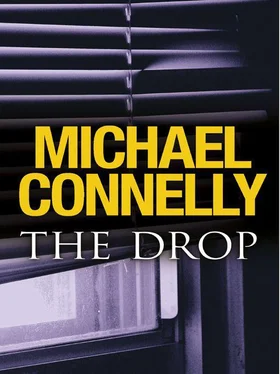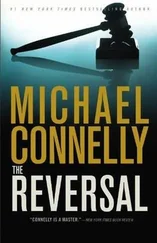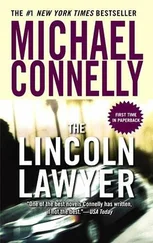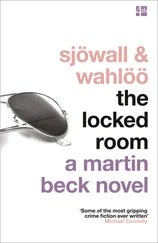Chu produced the mug shot of Pell. Hardy studied it for a long time before shaking his head.
“Don’t recognize him.”
“Well, that’s him now. He lived with your son about twenty years ago.”
Hardy now seemed surprised.
“Twenty years ago? He’d be just a — oh, I know, you’re talking about that boy who lived with Chilton with his mother up there in Hollywood.”
“Close to Hollywood. Yes, he would’ve been about eight years old back then. You remember him now?”
Hardy nodded and that made him start to cough again.
“Do you need some water, Mr. Hardy?”
Hardy waved the offer away but continued a wheezing cough that left spittle on his lips.
“Chill came around here with him a couple times. That’s all.”
“Did he ever talk to you about the boy?”
“He just said he was a handful. His mother would go off and leave him with Chill and he wasn’t the fatherly type.”
Bosch nodded as though it was important information.
“Where’s Chilton now?”
“I told you. I don’t know. He doesn’t visit me anymore.”
“When was the last time you saw him?”
Hardy scratched the stubble on his chin and then coughed into his hand once more. Bosch looked up at Chu, who was still standing.
“Partner, can you go get him some water?”
“No, I’m fine,” Hardy protested.
But Chu had gotten the partner message and went down the hallway next to the staircase to a kitchen or bathroom. Bosch knew it would give him the chance to take a quick look around the first floor of the town house.
“Do you remember when you last saw your son?” Bosch asked again.
“I. . no, actually. The years. . I don’t know.”
Bosch nodded as though he knew how families and parents and children could drift apart over time.
Chu came back with a glass of water from a sink. The glass didn’t look very clean. There were smears of fingerprints on it. As he handed it to Hardy, he gave Bosch a furtive shake of his head. He had not seen anything useful in his quick foray into the house.
Hardy drank from the glass, and Bosch tried once again to get a line on his son.
“Do you have a phone number or an address for your son, Mr. Hardy? We would really like to talk to him.”
Hardy put the glass down next to the ashtray. He reached a hand up to where the breast pocket of a shirt would have been but he had no pocket on the smock he was wearing. It was a subconscious move to a pack of cigarettes that weren’t there. Bosch remembered doing that himself back when he was addicted.
“I don’t have a phone number,” he said.
“What about an address?” Bosch asked.
“Nope.”
Hardy cast his eyes down as it seemed to register that his answers were a testament to his failings as a father, or his namesake’s failings as a son. As Bosch often did in interviews, he jumped nonsequentially in his questions. He also dropped the ruse of the visit. He no longer cared whether the old man thought they were investigating Clayton Pell or his son.
“Did your son live with you while he was growing up?”
Hardy’s thick glasses magnified his eye movements. The question got a reaction. Rapid- eye movement as an answer was formulated was a tell.
“His mother and I got divorced. That was early on. I didn’t see much of Chilton. We lived far apart. His mother — she’s dead now — she raised him. I sent her money. .”
Said as if the money were his only duty. Bosch nodded, continuing the pose of understanding and sympathy.
“Did she ever tell you about him being in trouble or anything like that?”
“I thought. . you told me you were looking for that boy. Powell. Why are you asking about my son growing up?”
“Pell, Mr. Hardy. Clayton Pell.”
“You’re not here about him, are you?”
That was it. The play was over. Bosch started to stand.
“Your son isn’t here, is he?”
“I told you. I don’t know where he is.”
“Then you wouldn’t mind if we took a look around for him, right?”
Hardy wiped his mouth and shook his head.
“You need a warrant for that,” he said.
“Not if there is a safety issue involved,” Bosch said. “Why don’t you just sit right there, Mr. Hardy, and I’ll take a quick look around. Detective Chu will stay with you.”
“No, I don’t need—”
“I’m just going to make sure you’re safe here, that’s all.”
Bosch left them there, with Chu attempting to calm Hardy’s agitation. He moved down the hallway. The town house followed a typical plan with the dining room and kitchen stacked behind the living room. There was a closet beneath the staircase and a powder room as well. Bosch glanced quickly into these rooms, assuming that Chu had already searched them when he went to get water, and opened the door at the end of the hall. There was no car in the garage. The space was crowded with stacks of boxes and old mattresses leaning against one wall.
He turned and headed back to the living room.
“You don’t have a car, Mr. Hardy?” he said as he approached the staircase.
“I get the taxi when I need to. Don’t go up there.”
Bosch stopped four steps up and looked at him.
“Why not?”
“You got no warrant and you got no right.”
“Is your son upstairs?”
“No, nobody’s up there. But you’re not allowed.”
“Mr. Hardy, I need to make sure we’re all going to be safe in here and that you’re going to be safe after we leave.”
Bosch continued up. Hardy’s demand that he not go up gave him caution. As soon as he reached the second level, he drew his gun.
Again the town house followed a familiar design. Two bedrooms and a full bath between them. The front bedroom was apparently where Hardy slept. There was an unmade bed and laundry on the floor. A side table had a dirty ashtray and a bureau had extra oxygen canisters. The walls were yellowed with nicotine and there was a patina of dust and cigarette ash on everything.
Bosch picked up one of the canisters. There was a label that said it contained liquid oxygen and was to be used by prescription only. There was a phone number for pickup and delivery from a company called ReadyAire. Bosch hefted the canister. It felt empty but he wasn’t sure. He put it back down and turned to the closet door.
It was a walk-in closet with both sides lined with musty clothes on hangers. The shelves above were stacked with boxes that said U-Haul on the sides. The floor was littered with shoes and what looked like previously worn clothes in a laundry pile. He backed out and left the bedroom, proceeding down the hall.
The second bedroom was the cleanest room in the home because it appeared to be unused. There was a bureau and a side table but no mattress on the bed frame. Bosch recalled the mattress and box spring he had seen earlier in the garage and realized that the set had probably been moved down from here. He checked the closet and found it crowded but more orderly. The clothes were hung neatly in plastic bags for long-term storage.
He went back into the hall to check the bathroom.
“Harry, everything okay up there?” Chu called from downstairs.
“Everything’s cool. Be right down.”
He re-holstered his weapon and leaned his head into the bathroom. Dingy towels hung on a rack and one more ashtray was on top of the toilet tank. A plastic air freshener sat next to it. Bosch almost laughed at the sight of it.
The bathtub enclosure had a plastic curtain with mold on it and the tub completed the motif with a ring of grime that looked years in the making. Disgusted, Bosch turned to go back down the stairs. But then he thought better of it and returned to the bathroom. He opened the medicine cabinet and found the three glass shelves fully racked with prescription bottles and inhalers. He randomly took one off its shelf and read the label. It was a four-year-old prescription for Hardy for something called generic theophylline. He replaced it and took down one of the inhalers. It was another generic prescription, this time for something called albuterol. It was three years old.
Читать дальше












